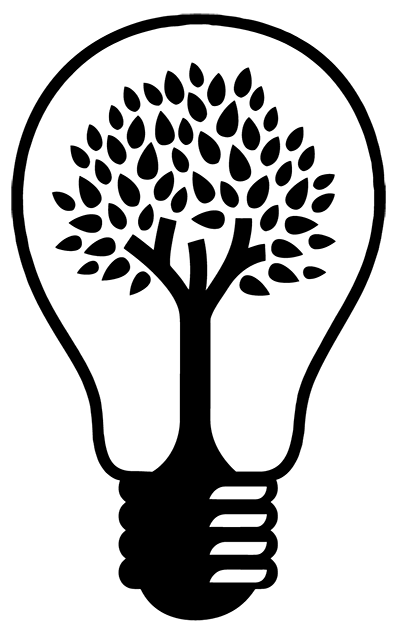Language correlates with behaviour...
Thank you for exploring…
Below are my thoughts on human development.
Diving right in…I believe language matters.
In language, we learn what it is like to be alive for the human…
“I can’t…”
“I’m not ready…”
“I don’t have enough experience…”
“I already tried before…”
“I know someone who failed before…”
“What if I don’t succeed…”
“What if I do…”
What is forming our language…
Our first 1000 days.
Through a series of true and false predictions, we learn how to remain attached to our caregiver.
We do whatever it takes to remain attached to this human.
Survival is our motivation.
At times it becomes unhealthy to remain attached to our caregiver, but we hang on to stay alive.
Ideally, our caregiver understood the importance of building trust in these first 1000 days. A foundation of trust makes interdependence a lot easier later in life. For some, the thought of trusting humans, or themselves, is extremely difficult.
The result is a secure or insecure style of relating.
As we mature, we need less of our caregiver, and we seek out independence.
Our need to be authentic becomes more important than our need to remain attached.
Choice…
Regardless of our early childhood conditioning, there is hope: the brain is plastic. We have the ability to progress towards self-regulation, using internal structures to manage stress versus finding external strategies. In the presence of warm accompaniment, we gain the courage to explore painful moments, and contextualize old memories, leaving them in the past.
Once we complete the past, there becomes a clearing for something new, a readiness…
Be - Do - Have
Purpose (World View):
In thermodynamics, we learned energy can neither be created nor destroyed; it may only change from one form to the next. I believe there are natural laws in the human dimension as well (i.e trust). When we align to these laws/principles, we get into flow, the rhythm of life, much like an electron flowing down a wire naturally ‘choosing’ the path of least resistance, in the long-run.
I believe words like trust have lasted in the human language for they most accurately describe our universe. In our initial stages of development we bounce between trust and mistrust with our caregiver. The quality of this relationship will affect how we like to be treated later in life, and how we behave.
We do not choose our early conditioning, but we do begin to build this ability to choose how we respond to external stimuli.
Unable to greatly influence our initial stages of development, our relationship with out caregiver greatly influences the way we enter this world. Trauma multiplies the inability to deal with adversity. At a certain age we recognize no external factor will fill our empty feeling, lack of purpose. We seek independence. We learn to create our own reality. A new drive towards authenticity becomes ignited (light bulb moment), and we begin to seek meaning.
When we reflect, we see our values are consistent in each role we play in life. This is the essence of our being.
The more we connect with what matters most, a transformation begins, and we see the opportunity to choose our thoughts to align with this authenticity.
With context, a grounded root system, we now can branch out into the world…
Mission (Action)
We know why we are here. Great… now what?
This is where I lean on the countless hours of research and development Birkman International has put into developing an assessment tool (298 questions in ~35min) to support people in understanding each other’s differences, discovering where they can perform at a high level for a long period of time.
As a pilot for the U.S. Air Force in WWII, Dr. Roger Birkman experienced the impact of differing perceptions had life threatening consequences. He became interested in measuring the human characteristics he saw influencing people’s perceptions, behaviours, and motivations. By 1950, Roger created a unique assessment, and founded Birkman & Associates in 1951. For the last six decades, Fortune 500 companies have been using this assessment to increase team performance, which is where I come in – to bring this assessment to teams and individuals of all walks of life.
A client of my mentor’s framed it well, stating The Birkman Method® “gave them the permission to be themselves”. This is what I call radical acceptance!
When we apply our signature strengths in a way that benefits a cause greater than ourselves, a momentum begins to build. Accessing flow state, the result is sustainable because we are aligning ourselves with an environment where we feel challenged, yet able.
The Trillion Dollar Question: If you were given a trillion dollars, what would you do with the rest of your entire life?
Take a minute and journal on the question, and reach out!
Vision (Result)
“Imagination is more important than knowledge. For knowledge is limited to all we now know and understand, while imagination embraces the entire world, and all there ever will be to know and understand.” – A. Einstein
We must be willing to let go of the past, and powerfully design a future worth living into today.
The definition of success which has resonated most:
“The progressive realization of a worthy ideal”
– Earl Nightingale
Visualization is an effective tool in my life. Here are a view examples of creating a goal and achieving nearly exactly what I had envisioned:
- 2009 Sales Contest: $10,000 in 10 weeks, winning a trip to the Bahamas during 1st year of university (sold $10,002)
- Running a Branch Office: hired and trained 58 representatives over a summer (some managers had to close their offices)
- After failing my first course of university at UBC, the following semester I declared I was an 80% student and averaged this exact grade to the nearest tenth of a decimal place (4 courses, 80.0%)
- Independently paid my way through 5 years of university with loans and personally generated income ($250,000 of CUTCO sales). Total estimated cost of degree: $120,000.
- Became a professional coach in Vancouver; starting during university was unexpected!
- Coaching a self-made millionaire; never mind for 15 months!
When we are clear with where we want to go, the path to get there will be laid brick by brick as you walk the yellow brick road. Letting go of the past is a process I walk my clients through, and we create a future they feel as passionately as they do about breathing oxygen!
What will it be like reading your story of today at 80 years old?
Application of The Conversation….
I. The Birkman Method®
The Birkman Method® is an assessment I use to remove the soil away from the roots, to see the exact nutrients and environment the tree needs in order to generate the greatest yield consistently. This is the scientific supporter to the spiritual conversation of PMV.
We show others either our effective behavior (Usual/Strength), or our ineffective behavior (Stress). Motivational factors such as our needs and interests, determine which behaviors we display. The difficult aspect to master is people’s needs may not be made obvious by their behavior. Also, we tend to do what it takes to get our needs met, whether it harms us and others, or not.
Dr. Birkman was interested at what was driving behaviors after seeing the impact of perception on flight and crew performance, as a bomber pilot in WWII. He found the expectations of our environment have a large influence on our behaviors and created a tool to measure differences in perceptions.
My mentor, Don Panton says, “Difference misunderstood creates conflict; Differences understood creates synergy”
II. Nonviolent Communication (NVC) or Compassionate Communication
Marshall Rosenberg was another man fascinated by people’s needs.
I’ve heard him define a need as “the present manifestation of the divine energy within.”
Scientists are able to prove when a person labels their feelings and needs, different sections of their brain are being engaged, and the individual is able to move out of fight-or-flight and into a space of empathy and compassion. (Interpersonal Neurobiology)
The paradigm shift I gained from Rosenberg’s systems is to focus on making life wonderful, versus needing to be right; to be more gentle with myself and other people.
Credible Thought Leaders
Stephen Covey, 7 Habits of Highly Effective People
Dave Phillips, Three Big Questions
Viktor Frankl, Man’s Search for Meaning
Zaffron & Logan, Three Laws of Performance
Marshall Rosenberg – Nonviolent Communication
James Allen – As a Man Thinketh
Earl Nightingale – The Strangest Secret
Discover Coaching
Schedule a 45-min Discovery Session


